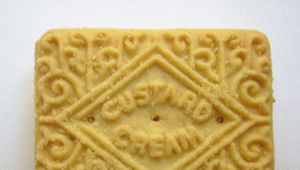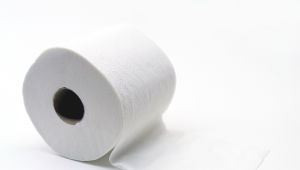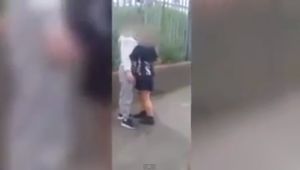If you’re one of those disgustingly young pups of the generation that stands to pay exorbitant university fees and thinks the savagely focus-grouped caterwauling Cher Lloyd produces passes for music then you might be forgiven for thinking that modern journalism is, well, a bit of a joke. Being as we’re up to our filthy faces in a media culture where stories like car bomb massacres that spatter human beings like chunky gazpacho are relegated in importance so that we can find out which footballer is throwing it up which brass or what state of disrepair Kerry Katona is currently in, then that view is more than understandable.
People will tell you, rightly, that the internet has dealt a swift kick to the danglies of the newspaper industry. This is due to the fact that dead trees and ink will never be as timely as an all-pervasive and seemingly omniscient information source like the web, and as it drags readers from paper to pixel the advertising coin that is the lifeblood of the industry follows suit.
This digs into papers’ resources, which leads to a culling of jobs. This in turn cuts the time the remaining journalists have to go out and find stories, the traditional and time-honoured method of cultivating contacts and mooching into pubs and council meetings digging for scraps squeezed out. The modern trainee journalist is more likely to find themselves chained to their desks, rewriting press releases that are emailed to them, turning out uninspiring copy with their angle prefabricated for them by PR duckers and divers who are always looking to sell a litter of pups.
Against this rather depressing background then it warmed my cockles to follow Nick Davies of The Guardian’s brilliant scoop regarding the phone hacking scandal that, like sewagey flood water, appears to seep through every crack and taint everyone it touches as it rises, from oily private investigators to police and politicians of questionable morals (perish the thought).
More...
Jon Ronson Interviewed: Stress, UFOs & The BBC Paedophile Ring
Jonathan Rendall: The Greatest Gonzo Writer You've Never Heard Of
This story gives me satisfaction as this type of intensive, resource-heavy journalism is drying up. Newspaper groups can’t afford to be paying the wages of someone who doesn’t produce on a daily basis, who doesn’t churn. The same applies to foreign desks, which have been ruthlessly cut down in recent times. Both of these things however undermine serious journalism whose purpose is, or at least should be, in the brilliantly phrase of Israeli reporter Amira Hass, “To monitor the centres of power”, to tell the public vitally important things that They want to hide.
As such, I wanted to take Davies’s story as a jumping-off point and have a look through recent history back to some other examples of what I consider great pieces of journalism. It’s a subjective choice, and there are many other great examples that are overlooked, including some from one of my personal favourites Robert Fisk, but space dictates.
Some are scoops and some are ongoing bodies of work, but all shone a light where there would have otherwise been darkness. I know, that’s really melodramatic but I couldn’t think of any other way to put it, so kiss my arse.
Wilfred Burchett – The Atomic Plague
Australian foreign correspondent Burchett gained arguably the scoop of the century when he took off alone for Hiroshima, braving trains full of what was until only recently the enemy, to become the first reporter to enter the city after the inappropriately titled nuclear bomb Little Boy wrought a whole new kind of destruction on the world. The last time a little boy had been dropped with such devastating effect he was swiftly handed to Mrs Hitler.
He arrived from Tokyo on September 2 1945 armed with a typewriter, rations and an old Colt revolver to view a wasteland: “As I looked in every direction there was nothing to be seen but flat acres of ground…there was devastation and desolation and nothing else.” He also saw that an old church had incredibly been thrown into the air by the blast only to return to its foundations practically intact and but shifted around.
He then went on to expose the widespread radiation poisoning that resulted from the bombing, with people dying, seemingly of nothing, in front of the helpless doctors. The American authorities strongly denied that this type of poisoning existed, going as far as describing fish, who died instantly upon entering water in Hiroshima, as ‘Japanese propaganda.’
His front page report in the Daily Express of the 5 September was written “as a warning to the world” and it is one we have just about heeded up to now.
Burchett arrived from Tokyo on September 2 1945 armed with a typewriter, rations and an old Colt revolver to view a wasteland...
Seymour Hersh – The Massacre at My Lai
In the way that Yo La Tengo or The Velvet Underground are sometimes mentioned as ‘the critics’ band’, Seymour ‘Sy’ Hersh tends to be viewed as the journalistic equivalent. Described by a colleague as an “unkempt dervish of a man emitting rapid bursts of strongly worded questions into a telephone with his arms going in nine different directions at once,” among his numerous triumphs came his exposure of the sickening massacre at My Lai.
My Lai was a hamlet in Vietnam that had been earmarked as a location to be checked for Vietcong. Upon landing, US troops, with journalists and photographers in tow, began to systematically murder men, women and children, in their homes and huddled in groups. A two-year-old boy, who climbed out of a mass of corpses, was chased and shot, as were babes in arms. Huts were burned to the ground, bodies mutilated, rapes were carried out and livestock were hacked to pieces. No VC were found.
All this would have gone unheeded, a buried story, if Hersh hadn’t gotten a hold of it. He criss-crossed the country interviewing everyone involved and produced a sober and clear-eyed report that stunned America.
In a classic arse-covering damage limitation exercise only one person, Lieutenant William Calley, was charged, and sentenced to life, of which he only served three and a half years under house arrest due to Richard Nixon, who probably couldn’t lie straight in bed, moving him there. His sentence was subsequently commuted to time served.
John Pilger – Cambodia
The world seemed to have something of a blind spot with regard to Pol Pot and his oppressively Luddite, backward Khmer Rouge whose social engineering led to genocide and widespread famine. Any unorthodoxy was not tolerated, and people were regularly disappeared and tortured for the crime of being intelligent; in fact, those wearing glasses were treated with suspicion and often ‘disappeared’, one aspect of the regime that I wouldn’t actually mind being carried out in Shoreditch, but there you go.
Pilger went to torture chambers, where dried, rusty patches of blood were on the floor and people’s hair was still in clumps on the bed frame where they were tied and electrocuted.
Pilger went to hospitals where children died of diarrhoea due to contaminated drinking water – at one point people despaired that there would not be another generation of Cambodians as the children died in such numbers and the women, underfed and overworked, ceased menstruating. He went to torture chambers, where dried, rusty patches of blood were on the floor and people’s hair was still in clumps on the bed frame where they were tied and electrocuted. He couldn’t shower as dead bodies were wedged in wells, as well as being used as fertiliser.
Seeing this, he wrote a series of articles for the Daily Mirror that brought in a raft of donations, as well as making a number of groundbreaking documentaries that put these crimes against humanity in the public eye.
The shocking thing is that, due to Cold War manoeuvring, Pol Pot’s regime was given official recognition by the world. Further reporting showed that, when aid did get through, the guerrillas benefited, not the public, and things reached a nadir when it transpired the SAS was training forces connected to the Khmer Rouge.
The iron lady herself displayed, not for the first time, a thick skull: “You must understand, there are reasonable Khmer Rouge.” Nice one Maggie, though she probably rushed her opinion a bit due to being late for tea with Pinochet.
Watergate
Including the Watergate investigation in this is about as predictable as ‘The Godfather’ being labelled among the greatest ever films, but its importance cannot be overstated. Bob Woodward and Carl Bernstein, two tenacious reporters from the Washington Post, pulled a thread when investigating a reported break-in at the Democratic National Committee’s offices in the Watergate hotel complex and found that the more they pulled the more unravelled, exposing a vast conspiracy that went all the way up to swarthy-jowled Tricky Dicky in the White House.
The scandal was that a slush fund linked to the Campaign for the Reelection of the President had been used to fund these burglaries, and as tapes emerged that revealed Nixon had tried to cover it up, he jumped before he was impeached. His successor Gerald Ford then pathetically gifted Nixon a pardon when he took office, though David Frost later did a good job of getting him to practically admit to what he’d done.
The more they pulled the more unravelled, exposing a vast conspiracy that went all the way up to swarthy-jowled Tricky Dicky in the White House.
The story was a slow burner, requiring a lot of work, and the two reporters received the backing to go out and keep digging despite fierce pressure from all sides. It also necessitated a series of meetings with a source hilariously named ‘Deepthroat’, and I do hope that at some point one of them said “I’m going to a multi-storey car park to see Deepthroat,” as if not this whole journalistic coup really has the shine taken off it for me.
Anna Politovskaya
The story of Russian journalist Anna Politovskaya is both an inspiring and depressing one. Despite the breakdown of communism and the new world that supposedly came to Russia, there is still an endemic air of oligarchy and conformity, and journalists who step out of line can find themselves assaulted and even killed. Politovskaya was unfortunately the victim of the latter, found slumped in a lift at her apartment building in 2006 with two bullets in her chest, one in her shoulder and one, with chilling professionalism, in her head from point-black range. No one has ever been convicted of her murder, although many people, including the late Alexander Litvinenko, have their theories on the possible shady political connections behind the assassination.
Politovskaya had made a name for herself with her crusading reporting from the warzone of Chechnya, exposing the human rights violations in the region and giving the oppressed people there a voice. While in Chechnya she was detained by the Russian military and interrogated and beaten, as well as being subjected to a mock execution. At home, her work was also critical of the Russian government under Vladimir Putin.
She received numerous death threats through her life, including one that allegedly came from an assistant of former Chechen president Ramzan Kadyrov. He is alleged to have said, it seems presciently: "Someone ought to have shot you back in Moscow, right on the street, like they do in your Moscow."
The point is that through all this she continued to stay true to what she thought was right, reporting the truth and informing people of what was really going on in Chechnya. She paid for doing her job with her life, and her bravery and work is something that should be commended, respected and remembered. Her story is also a warning that a free press is an essential part of a democratic society, something to keep in mind as the hacking fallout continues and the landscape changes.



